Top 100 Children’s Novels #94: Ramona and Her Father by Beverly Cleary
 #94 Ramona and her Father by Beverly Cleary (1977)
#94 Ramona and her Father by Beverly Cleary (1977)
20 points
I grew up reading the Ramona books (up to Ramona Forever). Ramona and Her Father is my favorite, and one that I try to read every Christmas. Although first published in 1977, the upheaval caused by Mr. Quimby’s unemployment remains relevant, especially today. (And Mr. Quimby accepting a job for which he is overqualified-in Ramona and Her Mother —is also quite relevant). – Jennifer Schultz
It was #89 two years ago on the previous poll. Now it squeaks in here at #94 but I think the drop only occurred because this isn’t the first Ramona title in the series. Then again, what exactly is the first Ramona title? The first she starred in solo? The first where she made an appearance? Henry freakin’ Huggins? Impossible to say.
ADVERTISEMENT
ADVERTISEMENT
Now considering the state of the current economy I was particularly pleased to see this book make our Top 100 list. If I were to ask you to name me all the great children’s novels where a parent has lost their job and suffered depression, the answers don’t come as readily to the lips as they might. This is what I love about Beverly Cleary. She took a light and seemingly fluffy series and dared to add some realistic issues to it. Even better is the fact that the dad doesn’t get a job as a high powered lawyer or business manager at the end. He becomes a check-out cashier, and you know what? That is great. Not every contemporary family in children’s literature has to be affluent, for crying out loud. As Gwenda Bond at Shaken & Stirred put it, “This is the one where her father gets laid off from his job; eventually, at the end, he gets a new one as a check-out cashier. I can’t remember the last time I read about a real blue collar family like this, where it was portrayed as okay and a non-issue to not be the Joneses.”
The plot description from the publisher reads, “Ramona just wants everyone to be happy. If only her father would smile and joke again, her mother would look less worried, her sister would be cheerful, and Picky-picky would eat his cat food. But Ramona’s father has lost his job, and nobody in the Quimby household is in a very good mood. Ramona tries to cheer up the family as only Ramona can, but her best efforts just make things worse. But when her father admits he wouldn’t trade her for a million dollars, Ramona knows everything is going to work out fine in the end.”
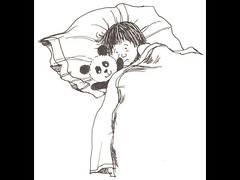 This book was included in a fantastic Slate article that took a long hard look at Great kids’ books about financial ruin. Erica Perl puts it best when she says, “The Quimby family is not as poor as the Peppers [Five Little Peppers and How They Grew] were, but there is a consistent theme of scrimping and ‘making do,’ which comes to a head in Ramona and Her Father, when Mr. Quimby loses his job. He sinks into a depression, smokes a lot, and snaps at his kids. Ramona and her older sister, Beezus, respond by trying to get him to quit smoking (which does not go over well). Cleary creates an impressively honest portrait of a family’s struggles, complete with 7-year-old Ramona fretting that her querulous parents will split up. Although Ramona’s parents do not divorce and ultimately reassure her that, as in the Pepper and Ingalls families, there’ll always be plenty of love in the Quimby cupboards, the fact that she views adults with a moderately jaundiced eye adds a contemporary dimension to this book. ”
This book was included in a fantastic Slate article that took a long hard look at Great kids’ books about financial ruin. Erica Perl puts it best when she says, “The Quimby family is not as poor as the Peppers [Five Little Peppers and How They Grew] were, but there is a consistent theme of scrimping and ‘making do,’ which comes to a head in Ramona and Her Father, when Mr. Quimby loses his job. He sinks into a depression, smokes a lot, and snaps at his kids. Ramona and her older sister, Beezus, respond by trying to get him to quit smoking (which does not go over well). Cleary creates an impressively honest portrait of a family’s struggles, complete with 7-year-old Ramona fretting that her querulous parents will split up. Although Ramona’s parents do not divorce and ultimately reassure her that, as in the Pepper and Ingalls families, there’ll always be plenty of love in the Quimby cupboards, the fact that she views adults with a moderately jaundiced eye adds a contemporary dimension to this book. ”
It won a Newbery Honor in 1978, beaten by the Newbery Award winning book of that year: Bridge to Terabithia.
- You can read through some of the book here.
- Here is a Reading Guide with questions for discussion.
- There’s a Teacher’s Guide to the Ramona books available off Ms. Cleary’s website.
Booklist said of it, “Another warm, funny, pithy story about Ramona, now in second grade. Daddy loses his job and there are resultant strains on family finances and relationships, but life goes on. In any household containing Ramona it could hardly do otherwise.”
Interesting covers too. Early on dad was prone to wearing plaid. It’s only recently that he’s exchanged that plaid for button up shirts.
Filed under: Best Books, Top 100 Children's Novels (2012)
About Betsy Bird
Betsy Bird is currently the Collection Development Manager of the Evanston Public Library system and a former Materials Specialist for New York Public Library. She has served on Newbery, written for Horn Book, and has done other lovely little things that she'd love to tell you about but that she's sure you'd find more interesting to hear of in person. Her opinions are her own and do not reflect those of EPL, SLJ, or any of the other acronyms you might be able to name. Follow her on Twitter: @fuseeight.
ADVERTISEMENT
ADVERTISEMENT
SLJ Blog Network
The Moral Dilemma of THE MONSTER AT THE END OF THIS BOOK
Winnie-The-Pooh | Review
Parsing Religion in Public Schools
ADVERTISEMENT






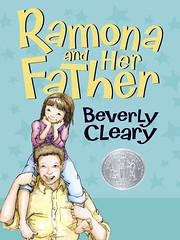
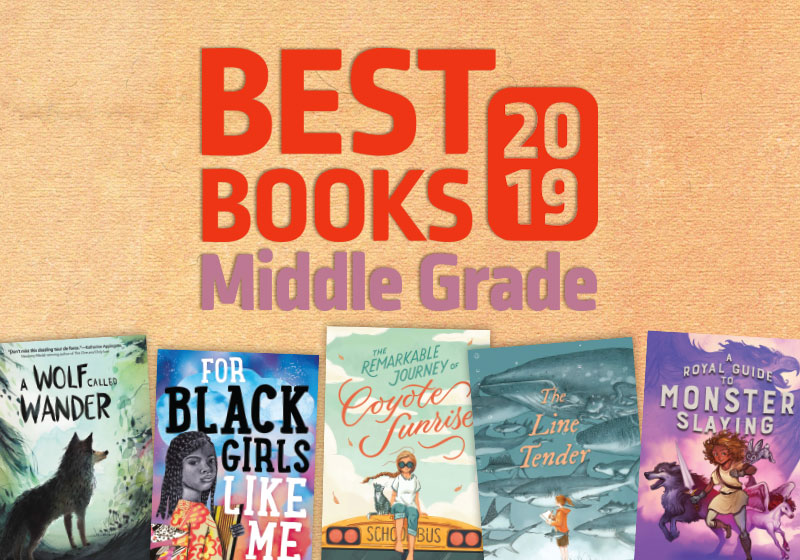
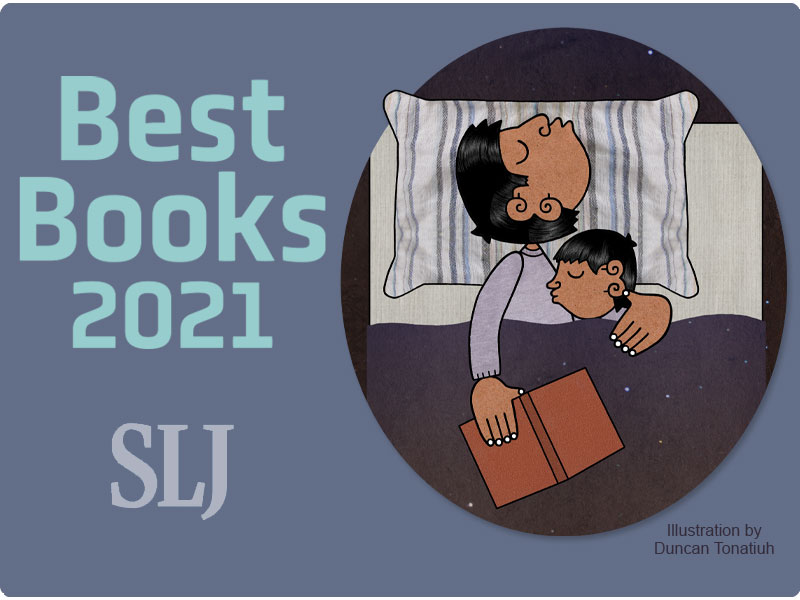

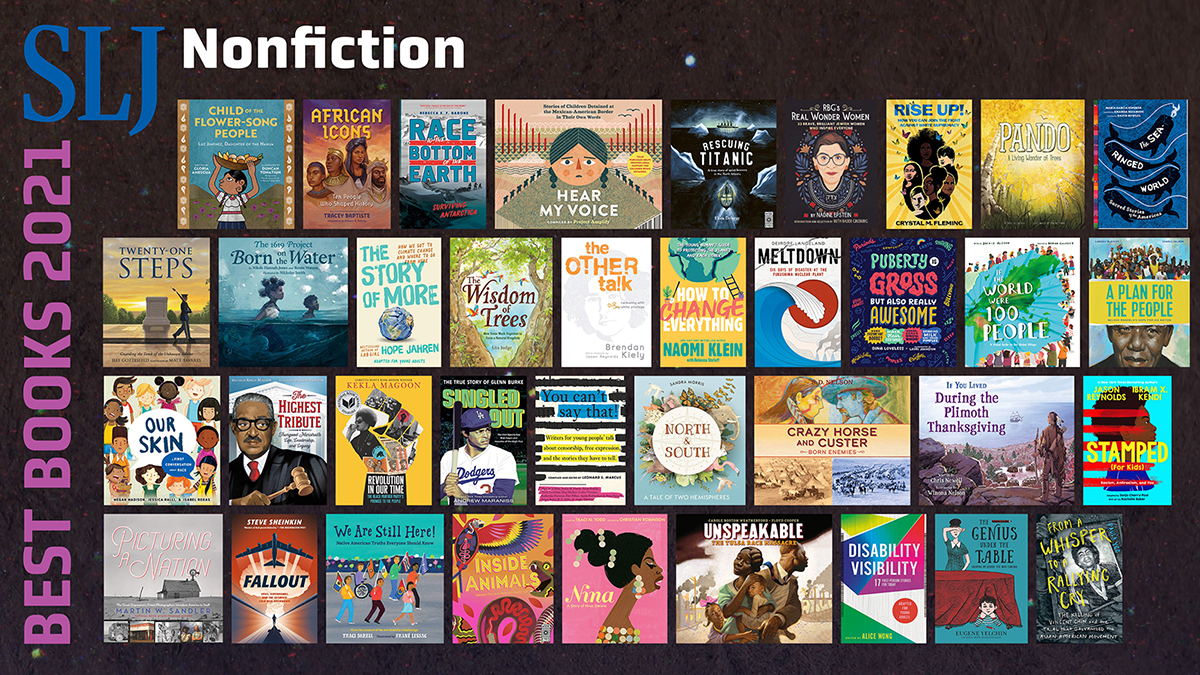

The brilliance of Cleary: the ability to take a complicated adult issue and show it through genuine child eyes.
Not my Ramona, but in this case the more Klickitat the better.
This is my favorite Ramona. I didn’t have a Ramona on my list, but if I HAD, I would have picked this one.
This was the most memorable of the series for me – how Ramona tried to cheer her dad up and find him a new job (circling the classifieds, right?), and how she felt when he had to deal with her making mistakes like making the burr crown (ow ow ow). I think this was the one where she first started to feel some responsibility for her family and some empathy worrying about how others feel, even though it was partly about how it impacted her.
And I’ll always remember her replacing her father’s cigarettes with rolled-up anti-smoking notes.
My favorite Ramona book. I love all the books-except perhaps the final one, which I didn’t read until I was in graduate school–but this one is the best.
“Didn’t grown-ups think children worried about anything but jack-o’-lanterns? Didn’t they know children worried about grown-ups?” No other book I’ve read has expressed this frustration so clearly.